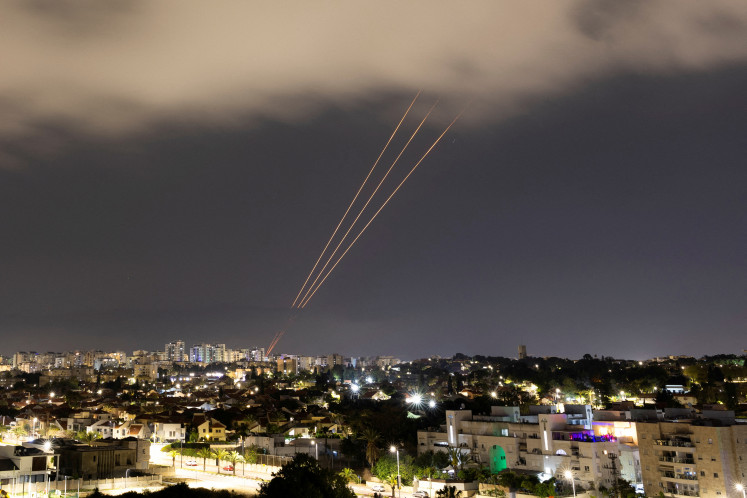Formula milk 'dangerous' as humanitarian aid
UNICEF has renewed calls for donors to refrain from sending formula milk as humanitarian assistance to victims of disasters, saying it could cause even more deaths
Change Size

UNICEF has renewed calls for donors to refrain from sending formula milk as humanitarian assistance to victims of disasters, saying it could cause even more deaths.
A UNICEF study found rates of diarrhea in Yogyakarta in the aftermath of the 2006 earthquake increased sixfold as the consumption of formula doubled.
Anne H. Vincent, head of UNICEF Indonesia's health and nutrition department, said there was a strong correlation between formula consumption and deaths due to diarrhea in the province during this period.
She said the increase in diarrhea cases was caused by unmonitored donations of infant formula to the disaster-stricken area, coupled with poor sanitation and limited access to clean water.
About 80 percent of children less than two-years-old who were affected by the earthquake received infant formula, which was handed out in clear plastic bags with no instructions on how to prepare it.
"Very often the first aid you see arriving locally is formula. These donations are often uncontrolled," Vincent said.
"It's not that people have negative intentions. What they don't know is in disasters such as tsunami, cyclones and earthquakes, affected families are already poor and often there's poor sanitation and so on."
Almost 6,000 people were killed in the earthquake, which destroyed 300,000 houses in Yogyakarta and Central Java, causing some 1.5 million people to be displaced. Bantul and Klaten regencies were the worst-affected areas.
"There's no clean water, no sanitation and so forth. Therefore bringing formula in increases and multiplies the rate of diarrhea and the risk of death for young babies," she said.
"Donations of powdered milk in an emergency situation can literally increase the rate of death of young babies, while the people mean to do good."
To make matters worse, she said, the donations encouraged mothers to stop breast-feeding their children and instead feed them infant formula.
The study found 42.6 percent of infants under five-months-old were fed infant formula after the quake -- a sharp increase from the pre-quake figure of 27.8 percent.
"We know breast-feeding is very important for children's health," Vincent said.
A UNICEF study conducted in 42 countries showed exclusive breast-feeding, with no additional food or liquid, proved to have the highest impact (13 percent) on saving the lives of infants, compared to all other interventions.
"People need to be informed this kind of donation is very dangerous," she said.
Located in the ring of fire, an area of frequent earthquakes and volcanic activity encircling the basin of the Pacific Ocean, Indonesia is prone to natural disasters. In addition, floods and disasters resulting from environmental degradation have struck many areas across the country.
More than 150,000 people were killed by the 2004 tsunami in Aceh and Nias Island, hundreds were killed in a 2005 earthquake on Nias and a tsunami in Pangandaran in 2006 killed more than 200 people.









